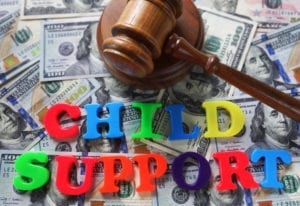
Divorce is very complicated. Very few people would argue with you about that. Besides dividing the couple’s assets and determining who gets what, there is the even more important question of figuring out custody. Deciding what is best for the children in a divorce can be one of the hardest things a divorcing couple has to do. And what comes in the wake of that choice is another contentious subject: child support.
Although child support and custody can be very frustrating subjects, it is very important that you abide by the decisions that are made by the court. Nothing will screw up your chances of getting to spend more time with your children faster than not following the assigned visitation times, or bailing on your custody time. However, when it comes to the matter of child support, the consequences for not making the court-ordered payments correctly and promptly can be extremely serious.
According to the Michigan Department of Health and Human Services (MDHHS), regular child support payments result in decreased conflict between parents, increased involvement of the non-custodial parents, and a better chance of children reaching their full potential. In addition, regular payments also help parents avoid the often unpleasant consequences of not complying with court ordered child support. For parents who choose not pay child support, the State uses rather severe methods for ensuring compliance.
This is a list of the ways the state of Michigan works to ensure that parents make their court ordered child support payments:
Wage garnishment:
Also known as income withholding, wage garnishment means that if you have a legal job, the State can deduct portions of your paycheck before it reaches you. In essence, your employer deducts the allotted amount before issuing you your check, and sends it directly to the Michigan State Disbursement Unit (MiSDU) so that it can be distributed.
This method is used to collect both current and past-due amounts. In fact, recent Michigan law requires that all new and modified child support orders include income withholding unless the parents agree on a different method.
Additionally, it is important to remember that your paycheck from work isn’t the only check from which the State can collect child support. Unemployment benefits, worker’s compensation claims, insurance claims, social security benefits and even money from independent contracting work could potentially be garnished for child support.
Suspended Driver’s License:
The State can choose to suspend or even revoke a parent’s license if they are more than two months behind in their child support payments. This can apply to driver’s licenses, recreational or sporting licenses, and even applications for professional licenses can be denied.
Liens and Levies:
If a parent is more than two months in arrears when it comes to court ordered child support payments, the Friend of the Court or MDHHS Office of Child Support may choose to initiate a lien/levy against assets. These assets could include any real estate owned, including a personal home; a car, boat or other vehicle; financial assets; or insurance claims.
Join us next time as we continue to look at this list of penalties that the state may choose to pursue in order to enforce child support payments from a parent. Until then, if you have questions or concerns about your own child support, or need help with any other family law matter from divorce and spousal support to personal protection orders, call us at (248) 479-6200. The skilled family law attorneys at The Kronzek Firm have spent decades helping the families of Oakland County and the surrounding areas with every aspect of their family law needs. We are here to help you too!
Leave a Reply